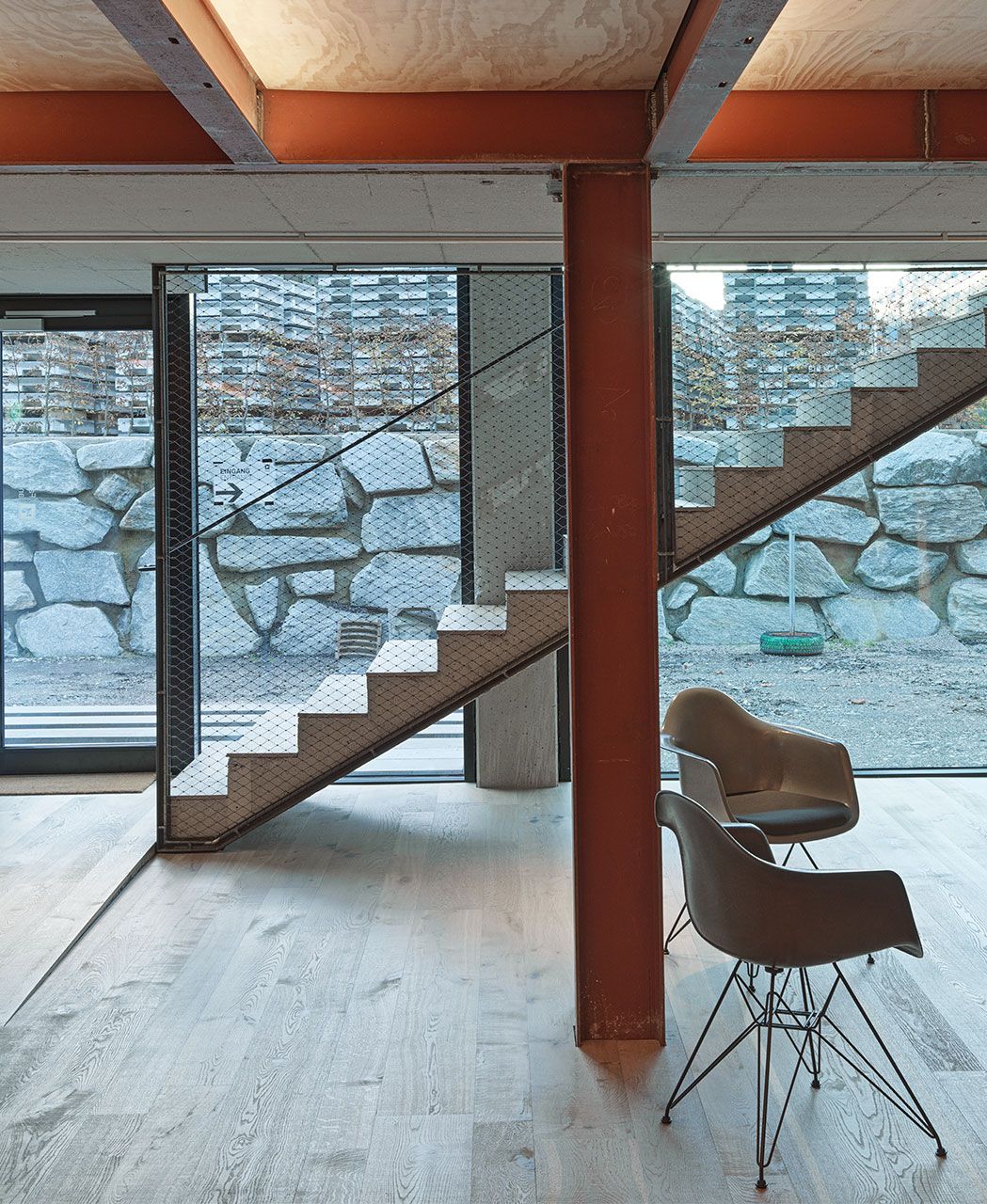Rieder Campus glemm21 awarded: Finally honest sustainability
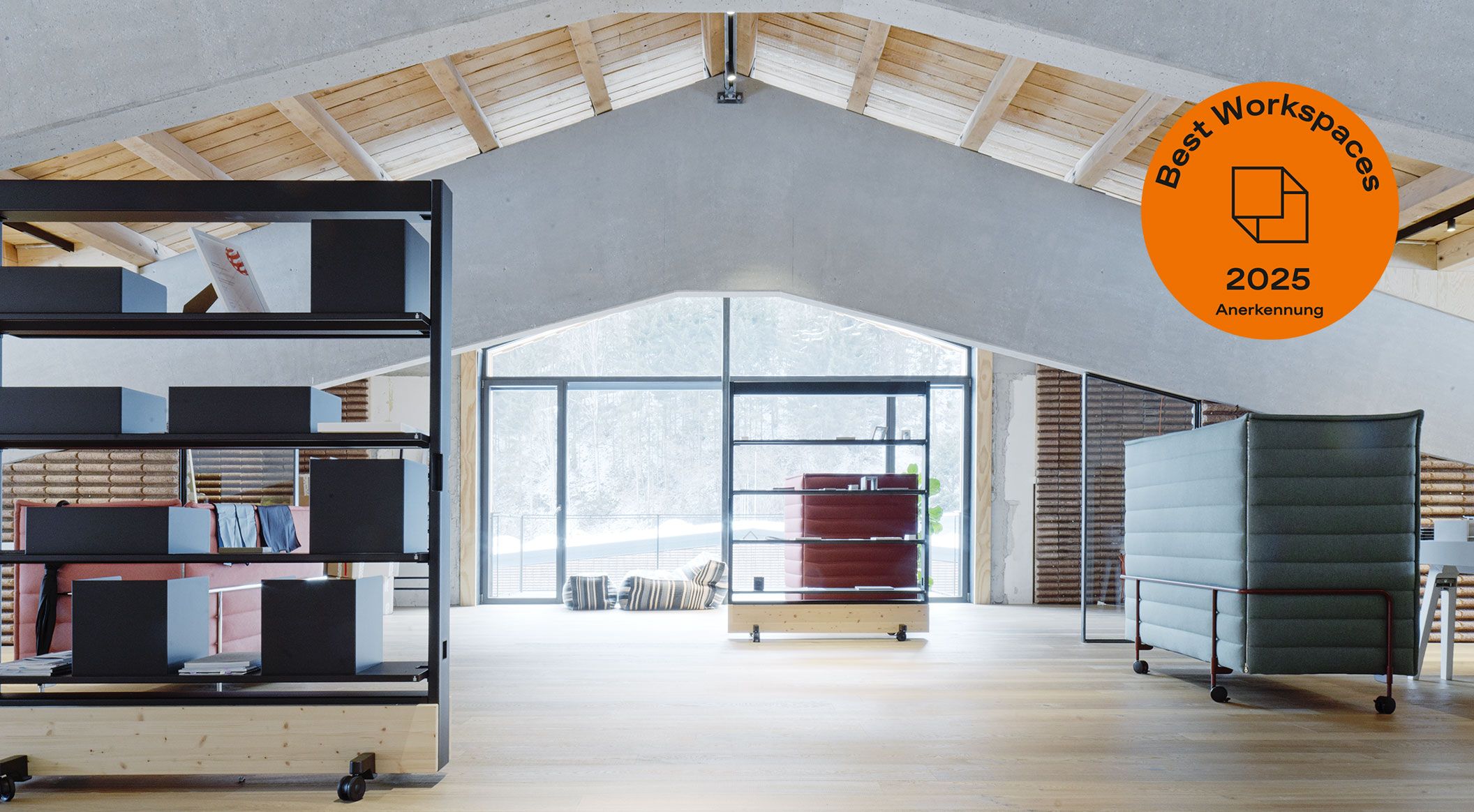
Rethinking the workplace
“If you love what you do, you’ll never work a day in your life.” – This Confucius quote was symbolically embraced at the Best Workspaces Award 2025 presented by Callwey Verlag. The award recognised modern work environments that go beyond functional offices: spaces that inspire, connect, and put people’s well being front and center. The top 50 projects from German-speaking regions were featured in the book Best Workspaces 2025. Among them is the new Rieder Campus glemm21 in Maishofen, which earned one of three special acknowledgments.
How we work shapes how we live. A modern workplace must offer more than just function—it needs to create atmosphere, foster emotional connection, and build identification. Architecture plays a pivotal role: it can bring people together and foster creativity. That’s the vision behind Rieder’s new headquarters: a space reimagined from an existing structure that allows for connection, innovation, and growth.
The jury was impressed by the overall concept. “Finally honest sustainability! This campus is no ordinary office,” said jury member Sabrina Tafelmeier. “It’s a stage for innovation, a lab for new ideas, and a home for creative work. It invites us to think bigger, be bolder, and create spaces that enable real futures.”
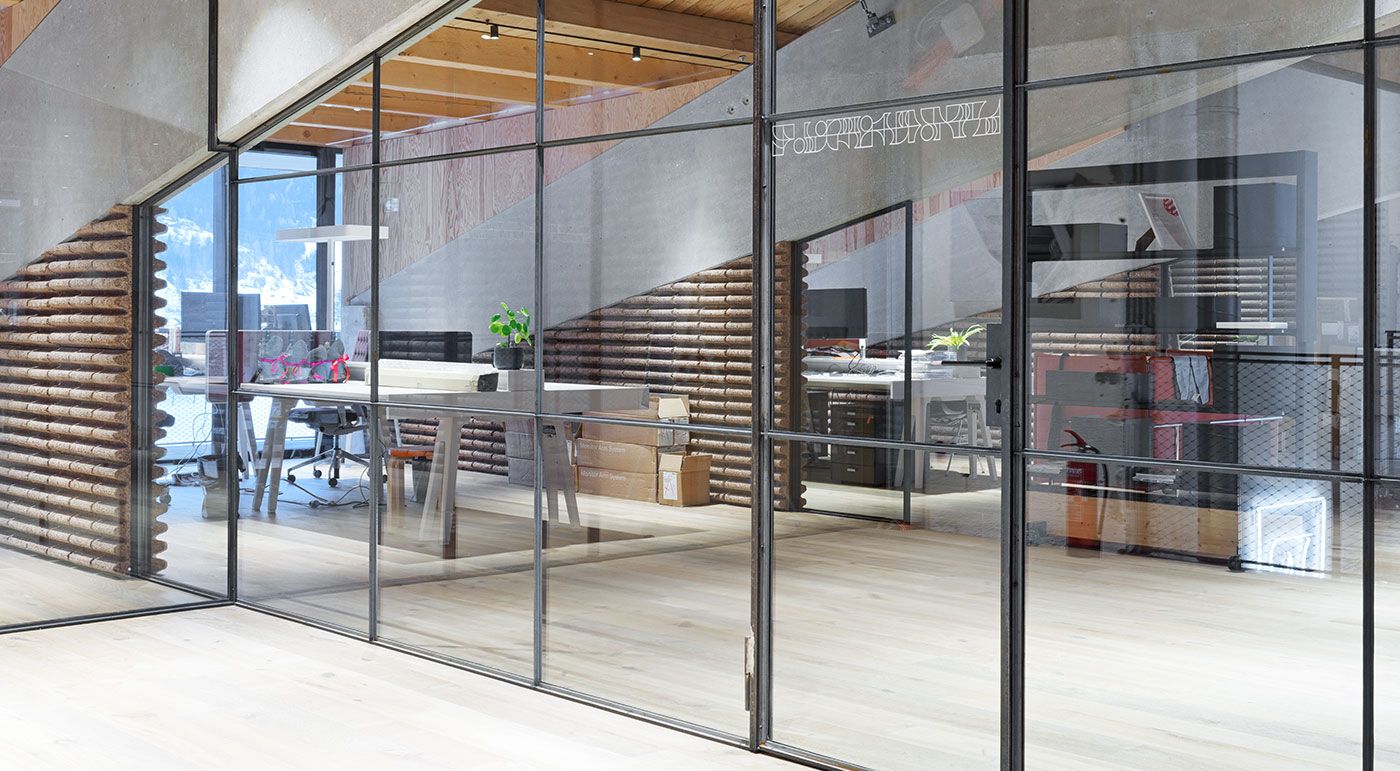
Sustainability through preservation
The new glemm21 campus was built from a decommissioned bus garage—an example of how forward thinking architecture can be achieved through revitalization. Instead of constructing a new building, Rieder deliberately chose to preserve the existing structure—a decision that's both ecologically and aesthetically compelling. Wolfgang Rieder explains: “Not building anything new, but using what’s already there is by far the most effective way to save embodied energy and avoid land sealing. That’s why we followed this route consistently.”
Many materials were reused during the renovation: an I beam from 1958, 150 tons of recycled steel beams, tiles from the old wash hall, used furniture, flooring, grass pavers, and a wall cladding made of Swiss pine. Combining these with high-quality new materials creates a deliberate contrast—a powerful statement for circular construction with identity. The concept is rounded out with a pellet heating system, photovoltaic installation, efficient LED lighting, an e mobility concept, use of wood, and low CO₂ glass fibre reinforced concrete facade panels.
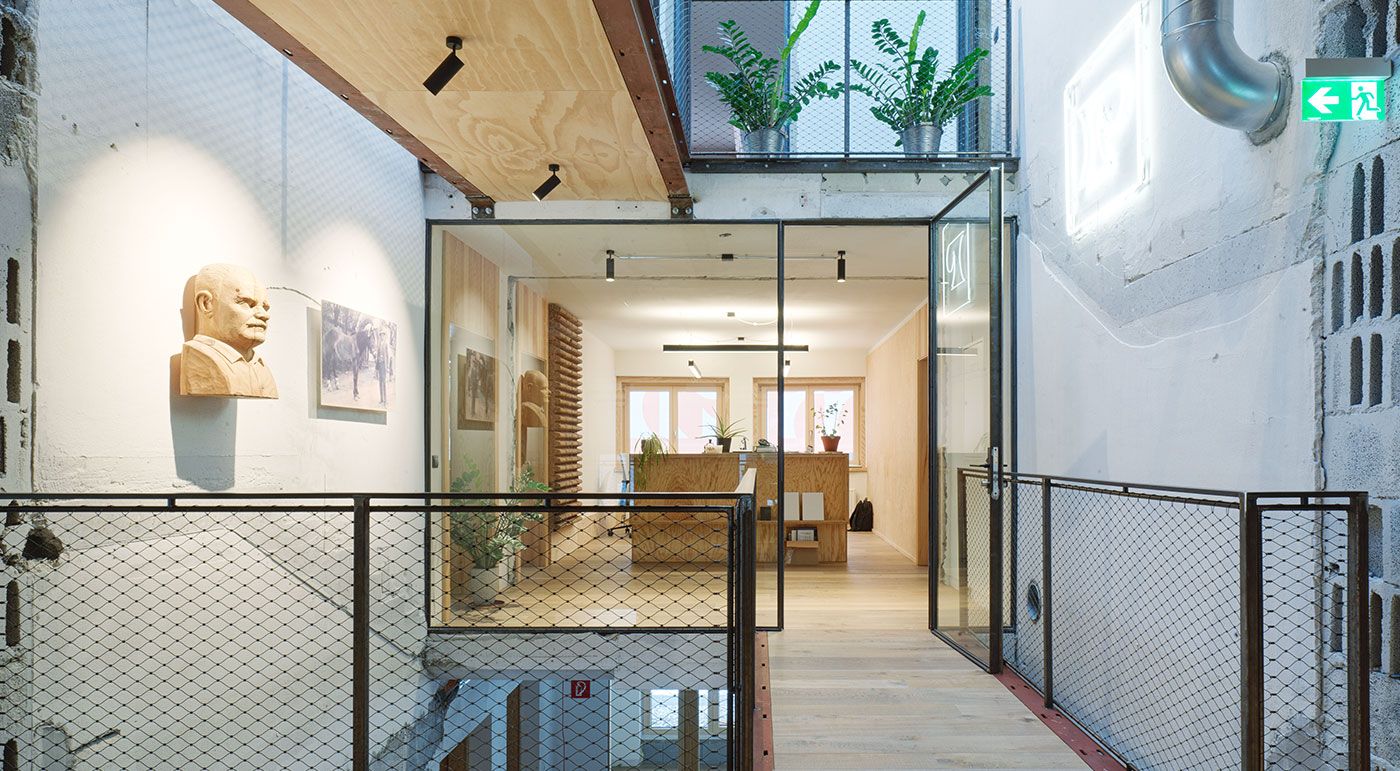
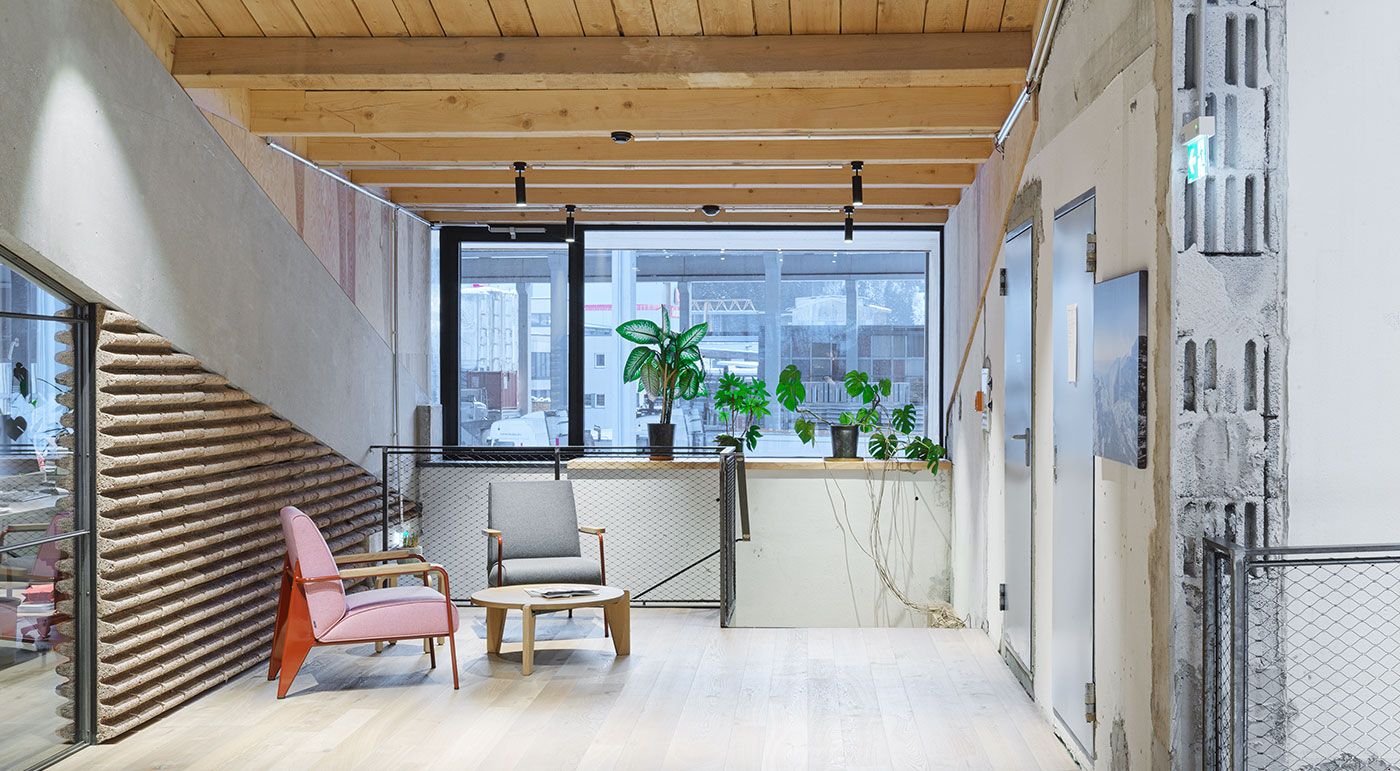
Architecture that brings people together
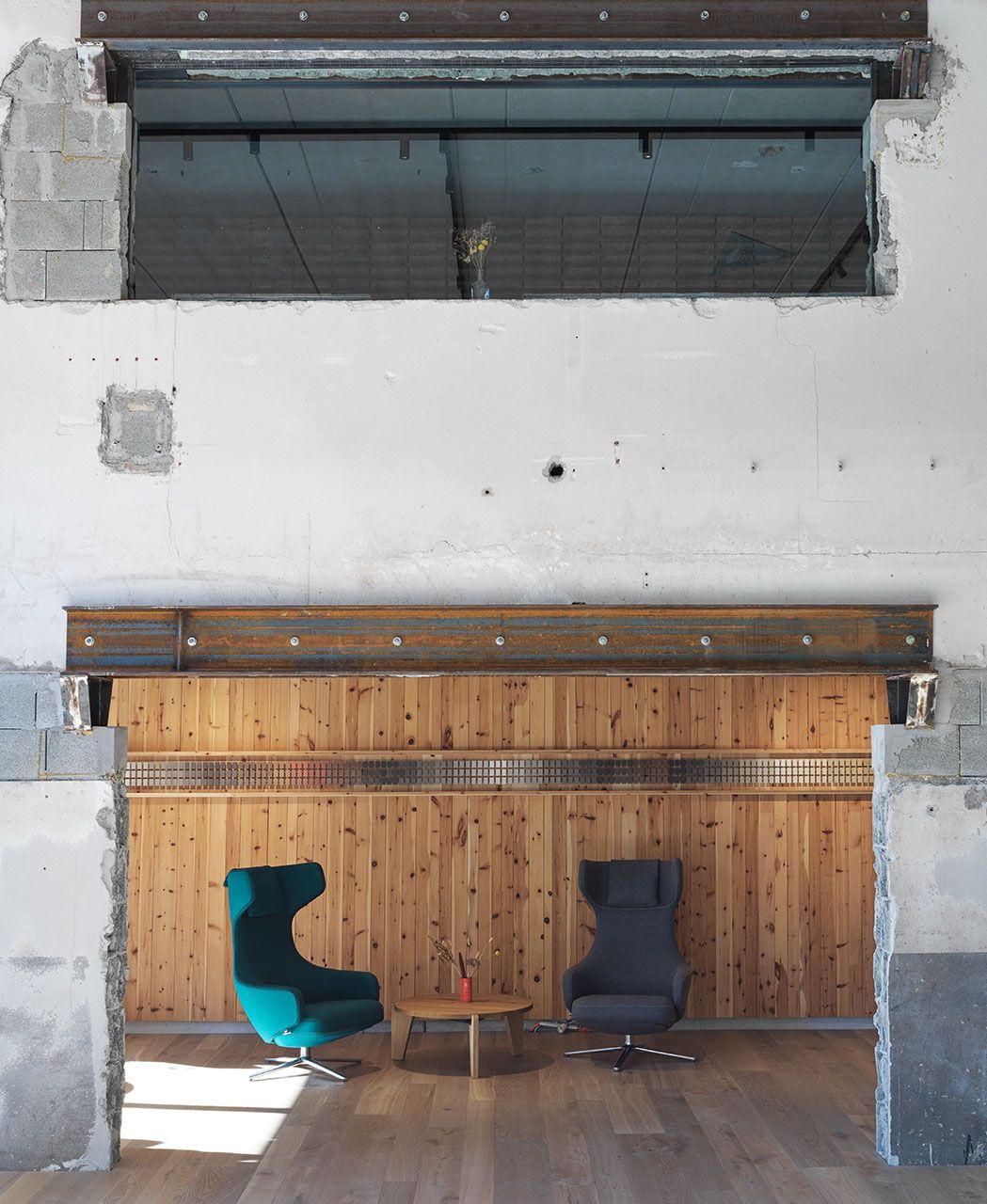
The real value of glemm21 lies within: in how people interact and connect. In partnership with architecture firm Kessler², a human-centered concept was developed. The guiding principle: architecture should serve people—not glorify itself. Architect Gerald Kessler puts it succinctly: “Our goal was to create a comfortable place that invites lingering, supports concentration, and allows flexible, diverse use. The selected materials should convey warmth and identity and give the building its own aura and sense of momentum.”
Walls were opened, windows enlarged, old staircases removed, and new voids introduced. The workspaces offer both retreat and interaction. Working with Vitra, spatial relationships were studied and flexible concepts developed—with mobile work zones, retreat areas, and open gathering spots, such as around the central coffee machine in the entrance. This layout encourages exchange, autonomy, and agile processes. Flexible work zones offer the freedom to switch between focused work and creative dialogue based on task and mood. Art, materials, and architecture blend into an inspiring environment where creativity and innovation thrive. Rieder’s products aren’t just developed here—they become a tangible part of daily life: materials can be experienced directly at the workstation, surfaces felt, and concepts tested.
A campus with attitude and future
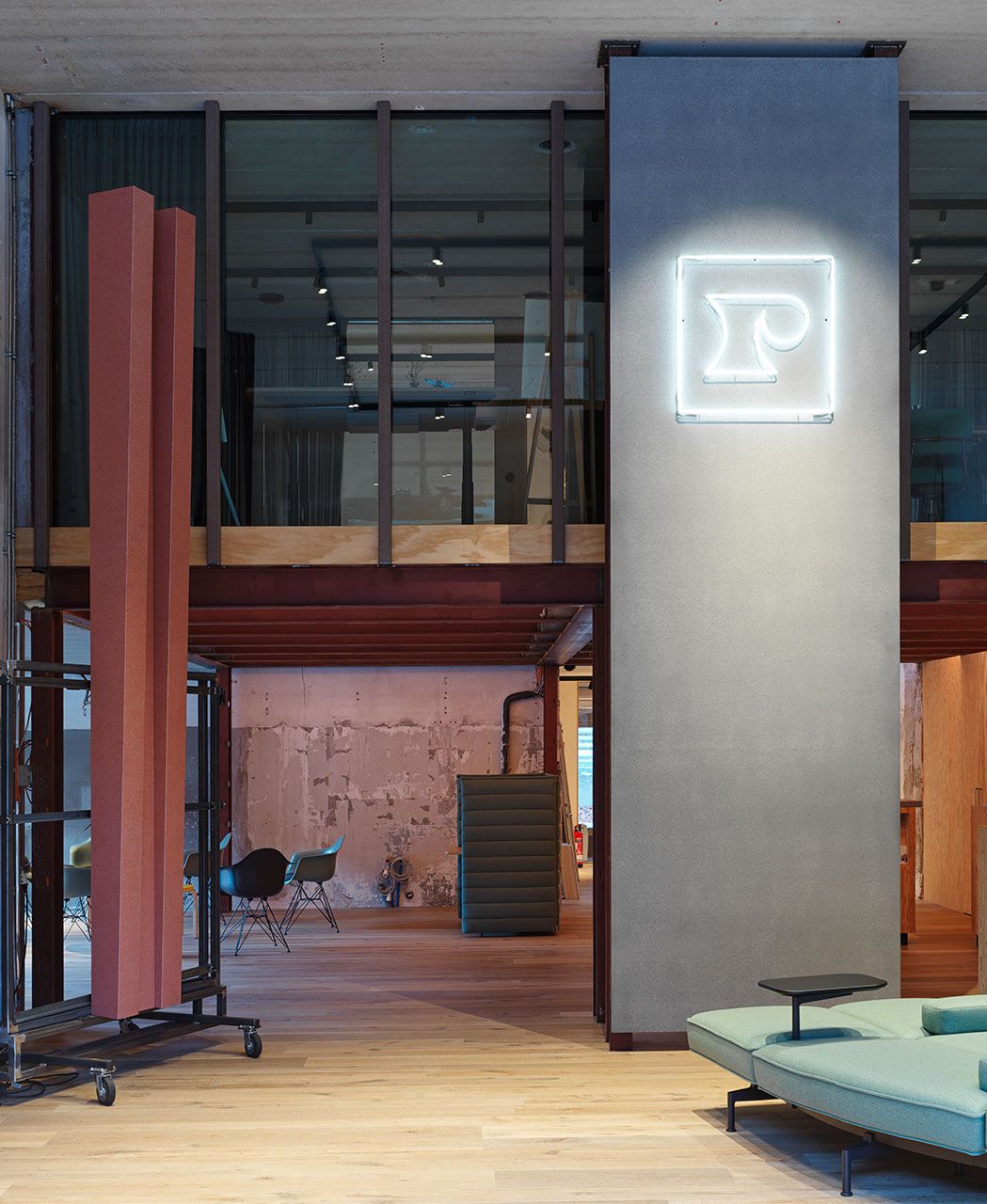
At Rieder Campus glemm21, sustainability, design, and corporate culture converge in a thoughtful, inspiring, and open workplace. It’s a place that impresses not only with its thoughtful layout, green outdoor areas, and ergonomic design but also emotionally: with a sense of welcome and personal growth.
The Rieder Campus is a living example of how something old can turn into something new—not by replacing, but by transforming. And how a good workplace can provide not just space, but purpose, identity, and inspiration—nurturing fertile ground for future-ready innovations.
